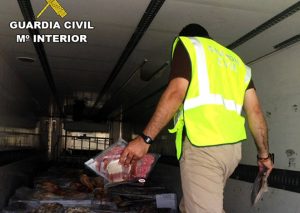We have one bathroom for the three of us, and my wife always says close the door, tightly, because I fart a lot when I pee.
 That’s nothing compared to what other people are doing with poop.
That’s nothing compared to what other people are doing with poop.
A Florida man is currently facing charges after smearing human poop on food in the supermarket.
According to Click Orlando, Edwin Pierce — the Florida man in question — is a 31-year-old resident of Melbourne, Florida. Identified as homeless in his most recent booking, Pierce previously lived in a home in the area, according to Florida Sheriff’s Office, who make such information public upon a suspect’s arrest.
He was charged with petit theft and criminal mischief after he smeared human poop on food in the Family Dollar on 2200 Sarno Road in Melbourne.
It is unclear what the origin of said human poop was — whether it was Pierce’s, or it belonged to another Florida man, and the arresting officer didn’t bother to ask that pertinent question.
A mystery woman walked into a store in Washington, pooped, bought baby wipes and left.
It’s a disgusting story of a woman who went No. 2 in aisle one.
Employees at the Prospector Liquidation Store in Longview, Washington, said the woman walked into the business on Tuesday around noon, reports KATU-TV.
“I saw her come in. She said, ‘Hi,’ and went off shopping, and then I really didn’t see her again until she came up to check out,” said an employee.
The woman paid cash for some rubber gloves and, ironically, baby wipes. She then left the store – and she also left something behind — poop.
“It was just weird. After we’ve seen the video, we were like…and then she bought stuff,” said another worker. “I went over there by the tarps and you couldn’t miss it.”
When the workers reviewed surveillance video, they saw the woman, who was wearing medical scrubs, make her way to aisle one, squat and defecate. The employees said the woman didn’t even ask to use the bathroom.
And in Canada, a 24-year-old Belleville resident is waiting on a bail hearing Thursday after an overnight argument with his neighbour about cat feces, Belleville police say.
According to a press release, police were called to a Coleman Street address because a neighbour’s cat had defecated in another neighbour’s flower bed.
Police say the affected neighbour then shovelled up dog poop and flung it at the cat-owners.
The 24-year-old man is facing charges of mischief and breach of recognizance.
It’s a big old goofy world.









